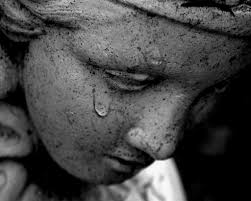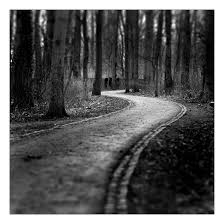Post by High Priestess on Nov 9, 2015 15:11:58 GMT
"The rope swing looked inviting. Photos of it on Airbnb brought my family to the cottage in Texas. Hanging from a tree as casually as baggy jeans, the swing was the essence of leisure, of Southern hospitality, of escape. When my father decided to give it a try on Thanksgiving morning, the trunk it was tied to broke in half and fell on his head, immediately ending most of his brain activity."

"It’s only a matter of time until something terrible happens,” The New York Times’s Ron Lieber wrote in a 2012 piece examining Airbnb’s liability issues. My family’s story — a private matter until now — is that terrible something.
Since the incident, I’ve felt isolated by the burden of this story and my sense of obligation to go public with it, but with an unclear aim. Am I “raising awareness,” in the familiar path of the victim speaking out? And if so, to what end? What will sharing my story really mean for Airbnb? Could the company, with its reportedly $24 billion valuation and plans to go public, do more to ensure the safety of the properties where millions of guests stay each year?"

"Startups that redefine social and economic relations pop up in an instant. Lawsuits and regulations lag behind. While my family may be the first guests to speak out about a wrongful death at an Airbnb rental, it shouldn’t exactly come as a surprise. Staying with a stranger or inviting one into your home is an inherently dicey proposition. Hotel rooms are standardized for safety, monitored by staff, and often quite expensive. Airbnb rentals, on the other hand, are unregulated, eclectic, and affordable, and the safety standards are only slowly materializing."

Airbnb, for its part, figured out early on that “really bad” photos of its listings in New York City were keeping guests away, as co-founder Joe Gebbia recalled to Fast Company in 2012: “People were using camera phones and taking Craigslist-quality pictures. Surprise! No one was booking because you couldn’t see what you were paying for.”
Airbnb’s solution was to send professional photographers to document hosts’ properties free of charge. The program was a success: professional photography quickly helped double revenue in New York and is now available nationally. Of course, were Airbnb to invest in safety requirements by offering home inspections or by analyzing photo content to target higher-risk properties and features (pools, saunas, trampolines, etc.) with site-specific safety recommendations, such a program could be far more costly, and might jeopardize Airbnb’s covetable neutrality as a platform. The irony is that amateur innkeepers who couldn’t be trusted with the banal task of photographing and marketing their properties are expected to excel at hospitality’s most important rule: keeping guests safe and alive.

See here for the blog story on Medium:
medium.com/matter/living-and-dying-on-airbnb-6bff8d600c04
"It’s only a matter of time until something terrible happens,” The New York Times’s Ron Lieber wrote in a 2012 piece examining Airbnb’s liability issues. My family’s story — a private matter until now — is that terrible something.
Since the incident, I’ve felt isolated by the burden of this story and my sense of obligation to go public with it, but with an unclear aim. Am I “raising awareness,” in the familiar path of the victim speaking out? And if so, to what end? What will sharing my story really mean for Airbnb? Could the company, with its reportedly $24 billion valuation and plans to go public, do more to ensure the safety of the properties where millions of guests stay each year?"
"Startups that redefine social and economic relations pop up in an instant. Lawsuits and regulations lag behind. While my family may be the first guests to speak out about a wrongful death at an Airbnb rental, it shouldn’t exactly come as a surprise. Staying with a stranger or inviting one into your home is an inherently dicey proposition. Hotel rooms are standardized for safety, monitored by staff, and often quite expensive. Airbnb rentals, on the other hand, are unregulated, eclectic, and affordable, and the safety standards are only slowly materializing."
Airbnb, for its part, figured out early on that “really bad” photos of its listings in New York City were keeping guests away, as co-founder Joe Gebbia recalled to Fast Company in 2012: “People were using camera phones and taking Craigslist-quality pictures. Surprise! No one was booking because you couldn’t see what you were paying for.”
Airbnb’s solution was to send professional photographers to document hosts’ properties free of charge. The program was a success: professional photography quickly helped double revenue in New York and is now available nationally. Of course, were Airbnb to invest in safety requirements by offering home inspections or by analyzing photo content to target higher-risk properties and features (pools, saunas, trampolines, etc.) with site-specific safety recommendations, such a program could be far more costly, and might jeopardize Airbnb’s covetable neutrality as a platform. The irony is that amateur innkeepers who couldn’t be trusted with the banal task of photographing and marketing their properties are expected to excel at hospitality’s most important rule: keeping guests safe and alive.
See here for the blog story on Medium:
medium.com/matter/living-and-dying-on-airbnb-6bff8d600c04









